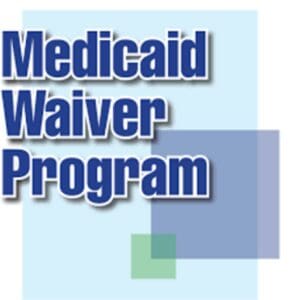 Medicaid waivers are programs authorized by the federal government that allow states to provide long-term care services to individuals who would otherwise require care in nursing homes or other institutional settings. These waivers, also known as Home and Community-Based Services (HCBS) waivers, enable states to offer services in home and community settings, providing an alternative to institutional care.
Medicaid waivers are programs authorized by the federal government that allow states to provide long-term care services to individuals who would otherwise require care in nursing homes or other institutional settings. These waivers, also known as Home and Community-Based Services (HCBS) waivers, enable states to offer services in home and community settings, providing an alternative to institutional care.
Key points about Medicaid waivers include:
- Community-Based Care: Waivers aim to support individuals by providing services in their homes, assisted living facilities, or community settings instead of in institutional environments like nursing homes.
- Service Coverage: Waivers may cover a range of long-term care services, such as personal care, transportation, adult day care, respite care, home modifications, case management, and assistance with activities of daily living.
- Eligibility Criteria: Each waiver program has its own eligibility criteria, which often include functional or medical need, financial eligibility based on income and assets, and the requirement that the individual qualifies for Medicaid.
- Limited Slots and Waiting Lists: Due to budget constraints and demand, some states may have waiting lists or limited slots available for their waiver programs. Priority for enrollment may be given to those at immediate risk of institutionalization.
- State-Specific Programs: Medicaid waivers are state-specific, and the services covered and eligibility criteria vary from state to state. Each state designs and administers its waiver programs within federal guidelines.
- Aging and Disability Focus: Waivers often target populations such as older adults, individuals with disabilities, and those with chronic illnesses who need long-term care but prefer to receive services in a community setting.
Examples of Medicaid waiver programs include Home and Community-Based Services (HCBS) waivers, waiver programs for individuals with intellectual or developmental disabilities, and waivers designed specifically for the elderly.
Navigating Medicaid waivers and understanding the specific services and eligibility criteria available in your state requires contacting the state’s Medicaid office or consulting with a Medicaid specialist or elder law attorney familiar with your state’s waiver programs. They can provide detailed information and guidance on accessing these services.

Recent Comments